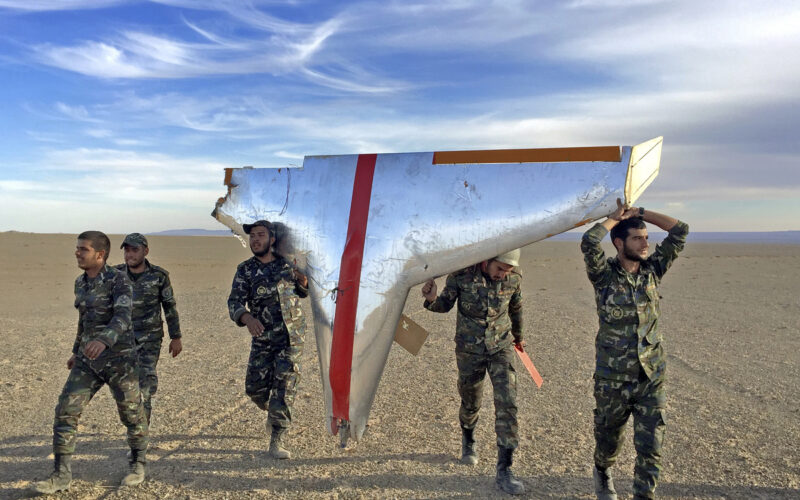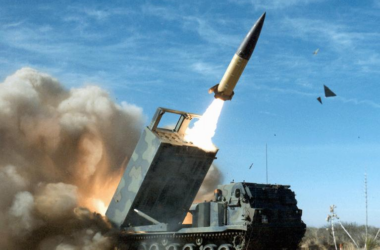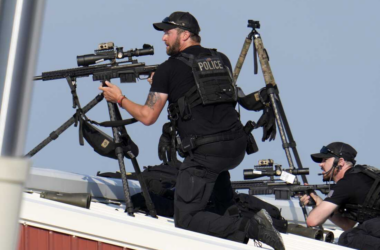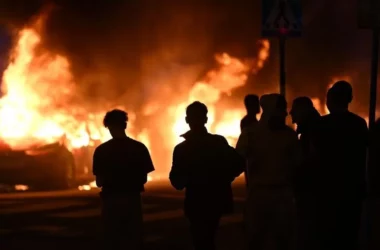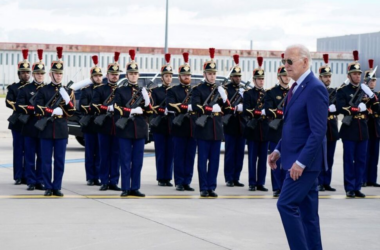The US military has stated that it destroyed dozens of projectiles from Iran during the attack on Israel. Reports suggest that Israel has not yet decided on a retaliatory strike. Here are the latest developments.
Iran fired more than 300 drones and rockets during its major assault on Israel over the weekend. According to the US military, numerous of these were intercepted by US European Command destroyers before they could inflict damage.
With the assistance of US destroyers, over 80 drones and at least six ballistic missiles targeting Israel were intercepted and destroyed on Saturday and Sunday. These were reportedly launched from Iran to Yemen, as announced by the US Central Command (Centcom) on X.
Among the destroyed projectiles were a ballistic missile on its carrier vehicle and seven drones, which were destroyed on the ground in areas controlled by the Houthi rebels in Yemen. The Houthi militias receive support from Iran.
“Centcom remains ready to support Israel’s defense against these dangerous actions by Iran. We will continue to collaborate with all our regional partners to enhance regional security,” the statement said.
Allegedly, 99 percent of the projectiles were intercepted. The drone and missile attack, mostly launched from Iran, caused minimal damage. Most of the projectiles, reportedly 99 percent, were intercepted by Israel’s “Iron Dome” defense system, with assistance from the United States, the United Kingdom, France, and Jordan.
Israel’s leadership has reportedly not yet decided how to respond to the Iranian attack. According to reports, the Security Cabinet did not reach a decision on the further course of action during more than three hours of consultations on Sunday afternoon, as reported by the “Times of Israel” newspaper.
Further discussions are scheduled to take place in the coming days, as reported by the news portal “Axios,” citing an Israeli official. Several options for a potential Israeli retaliatory strike were reportedly discussed during the meeting.
US President Joe Biden apparently urged Israeli Prime Minister Benjamin Netanyahu to carefully consider a possible strike against Iran and its consequences. During the phone call between the two on Saturday evening (local time), Biden reportedly emphasized the need to “carefully and strategically consider the risks of escalation,” said a senior US government official on Sunday.
Following the successful defense against the attack, Israel will reopen schools in most parts of the country starting Monday. After assessing the situation, it was decided to “resume educational activities throughout the country from Monday,” although with “restrictions” in border areas near Lebanon and in communities near the Gaza Strip, Israeli army spokesperson Daniel Hagari said Sunday on the online service X. Schools in the country had been temporarily closed on Saturday due to fears of an Iranian attack.
Despite the temporary calm, UN Secretary-General António Guterres warned of an uncontrollable escalation of the Middle East conflict. “The Middle East is on the brink,” Guterres said at a special session of the UN Security Council in New York. “People in the region face the real danger of a devastating, comprehensive conflict. Now is the time to de-escalate and de-escalate.”
Iranian UN Ambassador Amir Saeid Iravani said that the Islamic Republic had exercised its right to self-defense: “These actions were necessary and proportionate.” Israel’s representative Gilad Erdan countered that Iran had “crossed every red line,” and his country now had the right to retaliate against the retaliatory strikes. Iran’s National Security Council warned Israel against a military response to the retaliatory strikes.
US Secretary of State Antony Blinken consulted with his counterparts from Saudi Arabia, Jordan, and Egypt. The US State Department also said that Blinken spoke with the Turkish foreign minister.
In separate conversations, Blinken reiterated that the United States did not want escalation. He reiterated that the United States would continue to support Israel in its defense. Blinken also discussed with his Egyptian counterpart Sameh Shukry expanding humanitarian aid to people in the Gaza Strip. The protection of the Palestinian civilian population and an immediate ceasefire were also topics, aimed at ensuring the release of Israeli hostages in the Gaza Strip.
The United States and Egypt, along with Qatar, are the main mediators in the more than six-month-long war between the Israeli military and Hamas in the Gaza Strip.




